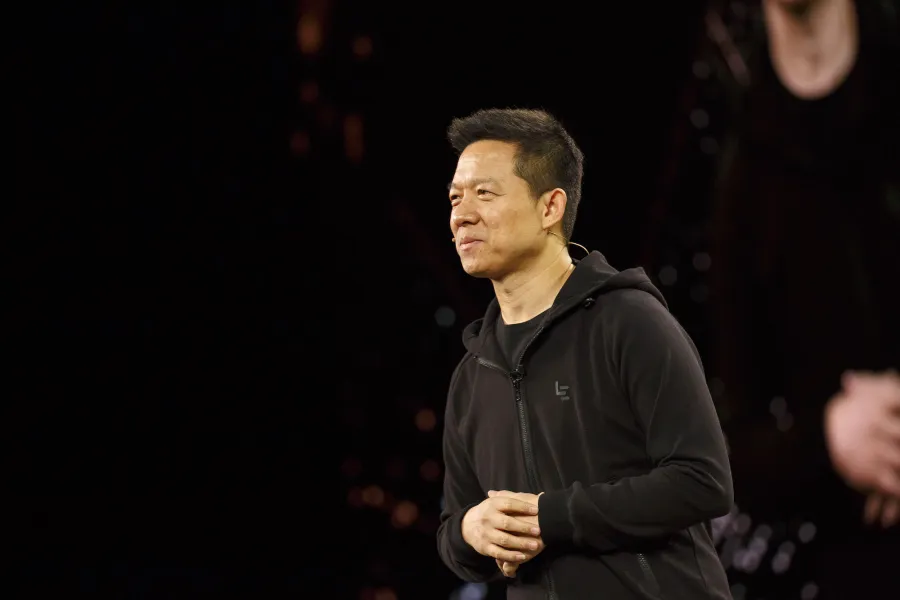Why Is Faraday Future's Founder Back as Co-CEO?
If you’ve been following the tumultuous journey of electric vehicle (EV) startups, you might be wondering why Faraday Future’s founder, Jia Yueting, is now back in a leadership role after being sidelined for years. The troubled EV company recently appointed Jia Yueting as co-CEO alongside Matthias Aydt, marking a dramatic comeback three years after an internal fraud probe led to his removal from day-to-day operations. This decision comes amid ongoing scrutiny from the Securities and Exchange Commission (SEC), which continues to investigate allegations linked to financial misconduct. For investors, industry watchers, and fans of luxury EVs like the FF91, this move raises questions about Faraday Future’s stability and strategic direction moving forward.
. Fallon/BloombergImage Credits:Patrick T. Fallon/BloombergThe appointment signals a pivotal moment for the company, but it also underscores the risks associated with reinstating controversial figures. Will Jia’s return stabilize Faraday Future or exacerbate its challenges? Let’s dive deeper into what this means for one of the most polarizing players in the EV market.
Jia Yueting’s Role in Revitalizing Faraday Future
Jia Yueting, the visionary behind Faraday Future, will oversee critical departments such as finance, legal, and supply chain management—areas that have historically plagued the company with inefficiencies and scandals. His return coincides with another key hire: his nephew Jerry Wang, who was named president last month. However, Wang himself resigned in 2022 due to “failure to cooperate” with the same internal investigation that initially sidelined Jia. These developments highlight the complex web of relationships within Faraday Future and raise concerns about whether nepotism could hinder progress rather than propel it.
Despite these controversies, Jia remains optimistic about revitalizing the brand. When he founded Faraday Future in 2014, he aimed to leverage his success in China’s electronics and media streaming industries to create a game-changing ultra-luxury EV. Unfortunately, the collapse of his previous empire forced him to self-exile to the U.S., where he poured over $3 billion into developing the FF91. To date, however, only a handful of units have been sold, fueling skepticism among critics and potential buyers alike.
Challenges Facing Faraday Future Today
Faraday Future faces significant hurdles as it attempts to compete in the crowded EV market dominated by giants like Tesla, Lucid Motors, and Rivian. One major issue is trust—both from consumers and regulators. Lawsuits alleging misrepresented sales figures have damaged the company’s reputation, while the lingering SEC investigation casts doubt on its transparency. Additionally, production delays and high costs have made scaling difficult, leaving many to question if the FF91 can ever achieve mass-market appeal.
Yet, there’s no denying the allure of Faraday Future’s vision. With cutting-edge technology and a focus on luxury, the FF91 represents a bold step toward redefining automotive excellence. If Jia Yueting can navigate the current storm and implement sustainable practices, Faraday Future may still carve out a niche in the premium EV segment.
What Does This Mean for Investors and AdSense CPC Opportunities?
For investors eyeing opportunities in the EV sector, Faraday Future presents both risk and reward. While the stock has seen volatility due to past mismanagement, Jia’s return could signal renewed confidence—or further instability.
Moreover, content focusing on related themes like “Tesla competitors” or “future of autonomous driving” can attract audiences interested in broader discussions about innovation in transportation. By integrating these terms naturally into your writing, you can boost visibility and monetization potential.
A Make-or-Break Moment for Faraday Future
As Faraday Future charts its course under renewed leadership, all eyes are on Jia Yueting and his ability to steer the company away from chaos and toward success. Whether this marks a turning point or another chapter in a long saga of setbacks remains to be seen. What’s clear is that Faraday Future’s story is far from over—and neither is the debate surrounding its place in the rapidly evolving EV landscape.
Stay tuned for updates as we explore how this controversial decision impacts not just Faraday Future but the entire electric vehicle industry. In the meantime, share your thoughts: Do you think Jia’s return will save the company—or sink it further?


